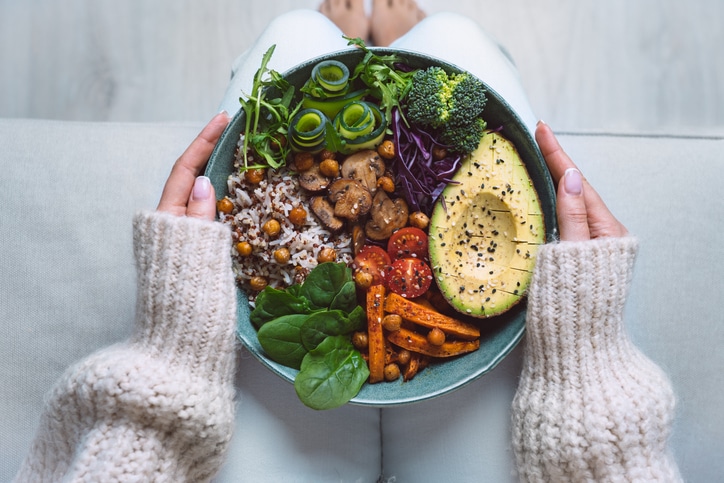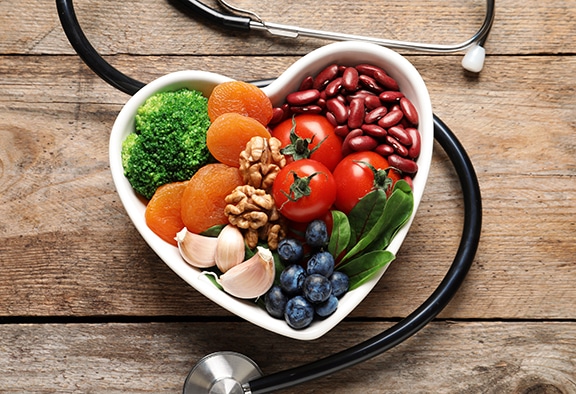
Maintaining healthy, glowing skin starts from within. For those managing diabetes, the foods you consume can have a significant impact on your skin’s health. By incorporating specific vitamins, minerals, and antioxidants into your diet, you can achieve a radiant complexion without relying heavily on skincare products. Let’s explore how a diabetes-friendly diet can be the foundation for beautiful, healthy skin.
Understanding the Role of Diet in Skin Health
How Diabetes Affects Skin Health
Diabetes can lead to various skin issues, including dryness, itching, and more severe conditions like diabetic dermopathy. Properly managing your diet is crucial in preventing these problems and maintaining overall skin health.
Why a Balanced Diet Matters
A balanced diet rich in essential nutrients supports skin health by:
- Protecting cells from free radical damage
- Reducing the appearance of wrinkles
- Keeping skin hydrated and elastic
Let’s dive into the key nutrients that can help you achieve healthy skin.

Key Vitamins for Glowing Skin
Vitamins C, E, A, K, and B Complex
Eating foods high in vitamins and antioxidants can protect your cells from damage caused by sun exposure and aging. These vitamins can reduce wrinkles, soothe rough skin, and keep your skin looking youthful. Incorporate the following into your diet:
- Fruits: Blueberries, blackberries, strawberries, plums, grapes, kiwi
- Vegetables: Sweet potatoes, carrots, artichokes, kale, peppers, spinach
- Nuts and Seeds: Sunflower seeds, pecans
- Legumes: Black, red, and pinto beans
Essential Fatty Acids for Skin’s Natural Barrier
Omega-3 and Omega-6 Fatty Acids
Fatty acids are crucial for the production of the skin’s natural oil barrier, which helps keep skin hydrated and less prone to inflammation. Essential fatty acids can be found in:
- Omega-3: Salmon, mackerel, sardines, flaxseed, walnuts, safflower oil
- Omega-6: Poultry, cooking oils, grains, nuts, seeds
Managing Your Diet with Food Intolerances
If you’re finding that some of the foods on these lists don’t agree with you, you’re not alone. Studies show that nearly 33 million Americans have food allergies, including 5.6 million children under age 18.
Managing food intolerances can be challenging but is achievable with proper planning. Unlike food allergies, which trigger immune responses, food intolerances affect the digestive system and may allow limited consumption of the problem foods. Key strategies include identifying specific intolerances, reading labels, and finding suitable alternatives. Consulting a healthcare professional or dietitian can help create a balanced meal plan, ensuring you meet your nutritional needs while avoiding triggers. Understanding your body and making informed food choices are essential for maintaining a healthy diet with food intolerances.
Vital Minerals for Skin Health
Selenium, Copper, and Zinc
Selenium
Selenium helps maintain skin elasticity and plays a role in preventing skin cancer. Rich dietary sources include:
- Whole grain cereals, brown rice, garlic, Brazil nuts, eggs, seafood
Copper
Copper, combined with vitamin C and zinc, helps develop elastin, which supports skin structure. Include foods like:
- Nuts, seeds, shellfish, avocados, beans, potatoes, peas, whole grains, green leafy vegetables
Zinc
Zinc is essential for the immune system and helps control oil production in the skin, which can be beneficial for acne. Sources of zinc include:
- Lean meats, oysters, poultry (like turkey), oats

The Importance of Hydration
Water for Skin Health
Hydration is key to maintaining healthy, youthful skin. Experts recommend drinking at least half a gallon of water a day, which translates to about 8 to 10 glasses. Additionally, consider water-rich foods and beverages such as:
- Water-rich foods: Watermelon, peaches, celery
- Beverages: Green tea, black tea
FAQs
1. How does diabetes affect skin health?
Diabetes can cause skin issues such as dryness, itching, and more severe conditions like diabetic dermopathy. Properly managing blood sugar levels and maintaining a balanced diet rich in essential nutrients can help prevent these problems.
2. What vitamins are essential for healthy skin?
Vitamins C, E, A, K, and B complex are crucial for skin health. These vitamins protect against free radical damage, reduce wrinkles, and keep skin looking youthful. They can be found in a variety of fruits, vegetables, nuts, and seeds.
3. How much water should I drink for healthy skin?
Experts recommend drinking at least half a gallon (8 to 10 glasses) of water daily to keep your skin hydrated and healthy. Additionally, you can consume water-rich foods like watermelon, peaches, and celery, and drink beverages like green or black tea.
By incorporating these diabetes-friendly foods into your diet, you can support your skin’s health from the inside out. Aim for a balanced, nutrient-rich diet to enjoy beautiful, radiant skin all year round.
